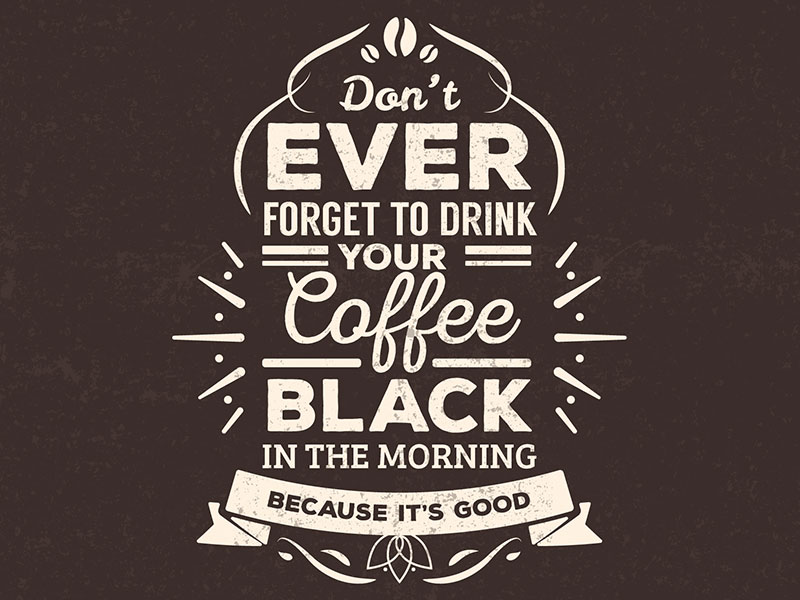Have you noticed that as your coffee cools it’s flavor starts to change?
When it’s piping hot and steaming like crazy, to me it tastes a lot more bitter.
As the temperature begins to drop I can start to pick out a lot of the sweeter tones.
I think this is a unique quality that coffee has, can anybody else think of another beverage that changes so drastically as it cools?
If so let us know in the comments below.
Depending on how you enjoy your coffee this may be more difficult to notice.
If you are a cream and sugar type of person you are probably masking the taste.
But if you like to drink your coffee black (the way it should be ;0) )then you will notice the biggest difference.
Every coffee is different. none of them will change in the exact same way.
But without a doubt, there is a noticeable flavor change happening.
What is that change?
Is it the coffee actually changing or is it our body’s ability to detect flavors?
If you ask James Hoffman, who has been part of the coffee industry since 2004 he will, somewhat, shamefully tell you he doesn’t know.
But what he does know for sure is that there is without a doubt a change in perceived taste.
If you ask Dana Hooshmand the founder of pilgrim coffee. He will tell you that any high-quality coffee will improve as it cools.
He credits it towards the fact that our taste buds aren’t overwhelmed by the heat from the coffee which allows us to enjoy the coffee’s flavor.
Taste Bud Science
Temperature is a factor that can affect taste according to Dr. Barry Green and the National Center for Biotechnology Information. This is proven by numerous studies.
We need to first define taste.
Taste is basically how our brain perceives oral sensations. There are 4 basic ways that things end up being translated:
Sweetness, Bitterness, Sourness, and saltiness.
That’s how the tongue portions work anyways. We also pick up tastes through smells.
Scents help us go deeper than the four basic senses our tongue can pick up.
When you drink a cup of delicious coffee, aromatics are swirling around you. You are breathing them in as you take a deep inhale before taking your first sip.
This is how we can start to detect things like vanilla, raspberry or sour apples in some coffee.
Pretty cool!
Is anything in my cup actually changing as my coffee cools?
The longer your coffee is exposed to the outside air the more time oxidation starts to play a role in this game.
Oxidation is always happening to coffee, not just at the brewing stage.
As soon as the coffee bean has been roasted oxidation starts.
Oxidation effects take place a bit slower right off the roast because coffee is releasing so much Co2 during this stage that it creates a shield around itself, not allowing oxygen in.
Like the wall to the north, being protected by sacred magic that will keep the Night King out.
Have you ever gone to the store and had your beans freshly ground at the store right there?
Hearing the hum of the grind and getting punched with the wonderful smell.
You were filled with anticipation.
Your mouth might water a little bit, looking forward to that next delicious cup.
And that next cup lived up to your hopes and dreams, it tasted just like it smelled.
Chocolate and caramel sweetness.
But…
Your next pot maybe not so much.
And the pot after that even worse.
The coffee is starting to lose the battle against oxidation.
The good flavor compounds are starting to die off and the bad ones come to life.
Now with all this being said, oxidation is a long term thing if you’re comparing it to the lifespan of a cup of coffee.

I drink a cup in about 15 minutes or so…depending on how my morning is going.
The flavor change that’s happening in our morning cup during this period is not due to Oxidation.
There are some people, however, who fill up their thermos and that is their gas tank for the entire day.
After hours of being in even the best thermos, you will probably start to notice a certain stale kind of taste.
Take Aways
Coffee starts to taste different as your cup starts to cool.
These taste changes are happening mostly due to the way our taste buds perceive taste.
As the coffee comes close to our body temperature we are able to pick out more of the flavors.
It’s easier for us to say hi to those flavors with out them burning the hell out of our tounges.
Coffee does oxidize but I doubt that it is playing a significant role in the flavor of your cup 15-20 minutes after brewing.
This is assuming that you have freshly roasted beans because oxidation occurs at all points in coffee’s life.
Next time you’re sipping on a cup of coffee pay close attention to the extra flavors that pop up towards the middle of the cup.
It’s fun to experience coffee as it matures.
If this was helpful, entertaining or made you think a little bit please like, share and join in on the conversation. Got a topic you want to know more about? Let us know and we can find out together!




